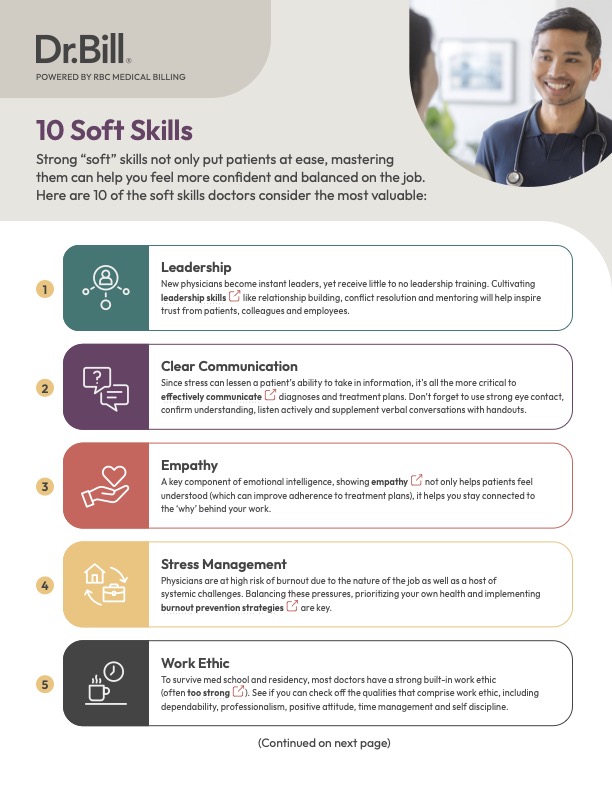Embarking on the journey of starting a locum practice in Canada can be a rewarding and fulfilling experience. Whether you are looking to open a locum practice for greater work flexibility or want to explore diverse healthcare experiences, these tips can help you kickstart your locum career.
What is a locum practice?
Locum (short for ‘locum tenens’) doctors are physicians who fill in for other doctors for a specific amount of time — weeks, months or even longer — while they have patient overflow, take leave or go on vacation. ‘Locum tenens’ literally translates to ‘place holder’.
Benefits of having a locum practice
Working as a locum will give you the chance to see how other medical practices are run, learn about practising in your specialization and experience different locations. A locum practice also provides flexibility in your schedule and more freedom in the way you work.
Locum tenens is also a benefit to healthcare practices and facilities to fill gaps from maternity or research leaves, patient overflow or staff shortages. Since the pandemic there has been an even greater need for locum doctors as many healthcare professionals are taking time away from the industry.
How much can a locum doctor earn?
Your doctor starting salary will be different depending on the area you choose to specialize in. The highest paid locum tenens tend to be surgical and medical specialties rather than more generalized disciplines like family medicine or emergency medicine.
For example, the highest paid doctors in the medical profession are eye doctors, which make an average of $791,000 per year. Internal medicine doctor starting salary is $404,000 and psychiatric doctor salary is an average of $311,000 per year. Sports medicine doctor salary gross is around $318,000 per year. General surgeons earn an average salary of $490,000 per year and obstetricians have a starting salary of $392,000. The average doctor starting salary for medical specializations is $363,000 per year. Here are some of the doctor starting salaries in Canada by specialty.
Qualities of a good locum doctor
Being a successful locum tenens physician goes beyond your medical expertise. Effective communication, adaptability and having a positive attitude are key qualities that make a good locum. Flexibility and the ability to integrate seamlessly into different healthcare environments are also essential. Whether you’re a new doctor or have been practising for many years, here are a few reasons that starting a locum practice may be right for you.

10 Soft Skills Every Physician Needs
Soft skills for doctors are an essential part of the job. Unlike almost every other career, at the core of the medical profession is someone’s well being.
Download the checklist to learn the 10 soft skills every physician needs.
Locum credentialing requirements
Credentialing for a locum physician is to confirm your professional identity and qualifications, including previous places of employment and hospitals where you may hold privileges that are in good standing. Make sure applications match your CV as the credentialing team will investigate any discrepancies, even minor differences. Be prepared to provide:
- Medical school diploma
- Proof of training, including residency and fellowship
- Malpractice insurance
- Board certifications
- Medical licences
Expect to name at least three professional references with current and correct contact information. Your references should provide a view of your competency, especially in the responsibilities you would be expected to perform on your locum assignment.
Hospitals mandate doctors have current vaccinations for hepatitis B, measles, mumps, rubella, varicella, tetanus, diphtheria, pertussis, COVID-19, influenza and meningococcal disease. In addition, a negative tuberculosis test result within the past year is usually required.
Choosing where to open your locum practice
When you are making the decision about where to work, consider how long you want to stay. Are you looking for a stable position that will last a year or more? Or do you want to be able to change locations after a few months? When you’re thinking of something longer term, it may give you the opportunity to broaden your search. If you’re interested in a shorter term role, it may make sense to stay closer to home.
Deciding on where you want to work likely involves the reasons for choosing locum work. Doctors who want to start a locum practice to travel may have a different mindset when choosing a position then a doctor choosing a position based on having more flexibility as they approach their retirement years.
Finding a locum position
Once you’ve decided where you might want to go, your next step is to look at the job openings that are available. You can start by searching job board sites like Indeed and LinkedIn. Partnering with locum agencies like locums and Physicians for You can expand your opportunities. If you’re willing to relocate to areas where your specialty is in demand, northern, rural recruitment programs and other government initiatives may have locum openings that often have higher salaries and benefits.
Negotiating locum rates
Negotiating your locum rate (including flex days, vacation days and holidays) is a crucial aspect of starting your practice. Research the industry and provincial standards and understand the specific needs of the healthcare facility or practice, so you can confidently negotiate your compensation. Don’t be afraid to speak up — negotiating locum contracts is common practice. Demonstrating your value and expertise can contribute to securing a more favourable rate.
Locum employment contract
Your locum tenens doctor agreement sets out the expected roles and responsibilities. This should include:
- Detailed job description, including inpatient/outpatient, number of patients, procedures required, instructions for patient follow-ups, etc.
- Payment structure, including hourly rate, out-of-house call rate, overtime, etc.
- Office administration (parking, access, required procedures, etc.)
- Appointment scheduling
- Eligible reimbursements such as EMR, supplies, support staff, etc.
Locum taxes
Working as a locum doctor has many financial benefits, such as being eligible for various tax credits (e.g., portion of your home you use as an office, mileage you use your personal car for business). But it also comes with some more responsibilities, like keeping track of all your income from different sources and reporting it to the Canada Revenue Agency.
Since you are operating as an independent contractor, you will have to report this income on your tax return. You will also need to register for a sales tax number (GST/HST) through your provincial regulatory body. Depending on how you work as a locum, you can choose to set up your locum practice as either a sole proprietor or a corporation. It’s best to work with a lawyer and a tax accountant who are familiar with all the legal and tax requirements and paperwork involved.
Conclusion
Starting a locum tenens practice in Canada offers physicians the opportunity to explore diverse healthcare opportunities, meet new people, enhance their skills and enjoy a flexible work and lifestyle balance. To learn more about how to start a locum tenens practice, download The Ultimate Locum Tenens eBook.







